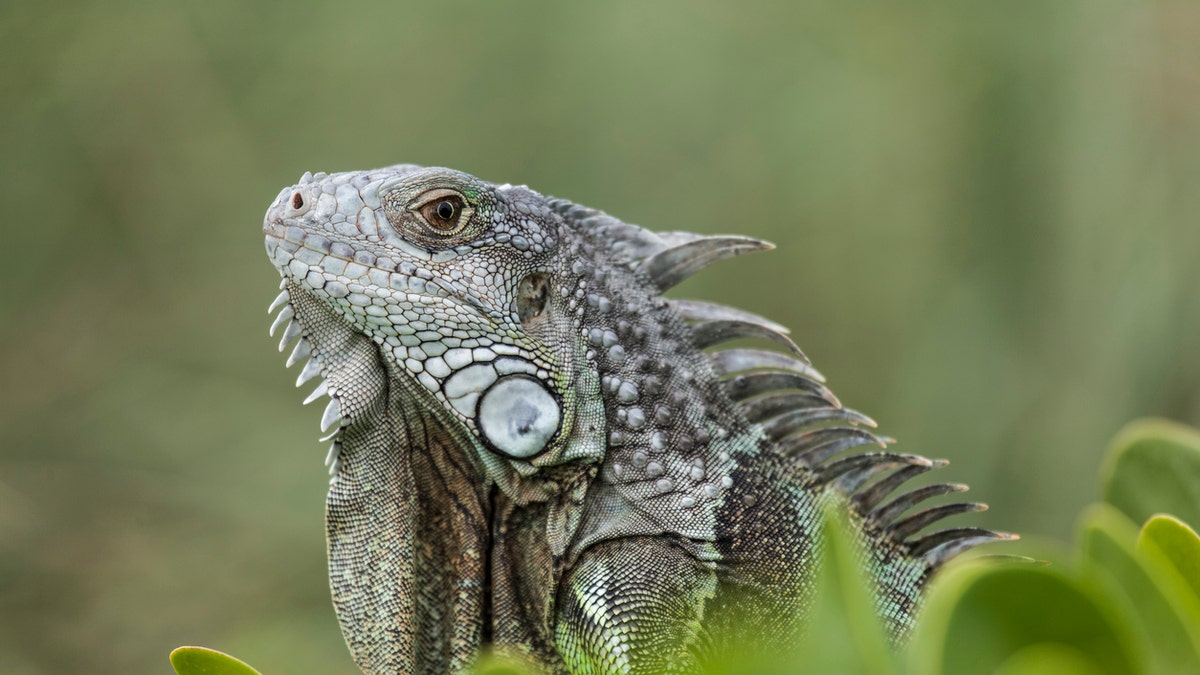I attribute all of my success to my faith: Mark Wahlberg
Mark Wahlberg discusses ‘Hallow’ and how faith has driven his life on ‘The Ingraham Angle.’
Catholics are instructed to abstain from eating meat on Fridays during Lent, a practice called abstinence.
"Meat" is defined as the flesh and organ meat of mammals and fowl — meaning that broth, lard and other byproducts do not count as consuming meat, even if they come from mammals or fowl.
Butter, gelatin, cheese and eggs, all derived from animals, also do not count as "meat," said the website for the United States Conference of Catholic Bishops (USCCB).
Neither does fish, which is described as "a different category of animal."
"Salt and freshwater species of fish, amphibians, reptiles (cold-blooded animals) and shellfish are permitted," said the USCCB.
But in some parts of the world, the definition of "fish" is stretched even further.

Alligator is "part of the fish family," according to an archbishop some 14 years ago. (iStock)
Here are five unusual examples of foods that have been eaten during the period of Lent (and in some cases are still eaten during Lent).
1. Alligator
While alligators certainly are cold-blooded reptiles and spend a good amount of time in the water, it was unclear if they counted as "fish" for purposes of Friday abstinence.
Archbishop Gregory Aymond of New Orleans addressed the matter in a March 2010 letter to Jim Piculas, an employee at the Insta-Gator Ranch & Hatchery in Covington, Louisiana.
The letter was shared by FOX 8 New Orleans.
TRUE MEANING OF FASTING DURING LENT GOES FAR BEYOND SKIPPING DESSERT, SAYS GEORGIA EVANGELIST
"Yes, the alligator is considered in the fish family and I agree with you, God has created a magnificent creature that is important to the state of Louisiana and it is considered seafood," he wrote.
Fox News Digital reached out to the Archdiocese of New Orleans for additional comment.
2. Beaver
As beavers are mammals, they are neither cold-blooded nor reptilian; but for part of the world, they are fair game on Fridays during Lent.

Religious superiors during the 17th century decided that beavers were close enough to fish to be permitted to be eaten during Lent by those who lived in what is now Quebec. (iStock)
During the 17th century, when Catholics began to settle what is now Quebec, Bishop Francois de Laval of the Diocese of Quebec had a question.
Could beavers be considered fish?
Laval argued that beavers spent most of their time in the water and that they swam quite a bit, said the website for the Canadian Martyrs Catholic Church in Hamilton, Ontario.
HOW A TRADITION DURING LENT LED TO THE CREATION OF THE FILET-O-FISH
His religious superiors agreed, and decided that beavers were close enough to fish to be permitted to be eaten during Lent.
It is unclear if this practice continued into the modern era.
3. Iguana
Iguanas are reptiles.
And they are considered in some areas to be acceptable to eat on Fridays during Lent.

In Nicaragua, and in other parts of Central and South America, iguanas are eaten during Lent. (iStock)
While iguanas are not an endangered or threatened species, Lenten tradition may be contributing to their decline, said The International Union for Conservation of Nature (ICUN)'s "Red List of Threatened Species."
"Iguanas are especially vulnerable to overharvest[ing] because adults are conspicuous during the mating season, females are easy to capture while nesting, and because in many areas these times of vulnerability coincide with the Catholic Lent period, stimulating consumption of iguanas because they are considered as ‘white meat,’" said the ICUN, which is headquartered in Switzerland.
THE SURPRISING LENTEN HISTORY OF THE PRETZEL — AND ITS MEANING FOR THE SEASON
The custom of eating iguanas during Lent is particularly popular in the country of Nicaragua, where iguanas are eaten throughout the year, not just during Lent, as well as in other parts of Central and South America.
4. Muskrat
Similar to their cousins the beaver, muskrats, which are mammals, are considered "fish" due to their aquatic lifestyles, but only in the Archdiocese of Detroit, one of the seven Catholic dioceses in the state of Michigan.
The practice of eating muskrat during Lent began in the late 18th century, notes the Detroit Catholic, the newspaper for the archdiocese.

The classification of muskrat as a "fish" began many years ago not out of a desire to find a clever loophole to eat meat during Lent — but rather to ward off starvation. (iStock)
The classification of muskrat as a "fish" was not done out of a desire to find a clever loophole to eat meat during Lent, but rather to ward off starvation, said the Detroit Catholic.
The harsh winters of the Detroit area made fishing nearly impossible, said the Detroit Catholic.
Muskrats, however, were both plentiful and easier to catch.
CLICK HERE TO SIGN UP FOR OUR LIFESTYLE NEWSLETTER
"As tradition has it, it was during these early years of the 19th century that the humble pastor of Ste. Anne Parish in Detroit, Fr. Gabriel Richard, lobbied for a special dispensation to the region’s residents to consume muskrat throughout the Lenten season," said the Detroit Catholic.
That dispensation continues to this day.
One parish in the Detroit area told Fox News Digital that it hosted an annual muskrat dinner until 2020 — although the practice of eating muskrat is more of a novelty than anything else, noted the Detroit Catholic.
5. Puffin
Small aquatic seabirds that are most definitely not reptiles or fish, puffins were actually deemed acceptable food for Lent in the late 17th century.

A pair of Atlantic puffin (Fratercula arctica) resting on a ledge at the top of a cliff. Papa Westray, Orkney Islands, Scotland. (iStock)
This was after a group of Benedictine monks from northern France were reported to have served puffin during Lent, said Dr. Sydney Watts in the 2011 article "Enlightened Fasting Religious Conviction, Scientific Inquiry, and Medical Knowledge in Early Modern France."
Watts is an associate professor of history and women, gender & sexuality studies at the University of Richmond.
CLICK HERE TO GET THE FOX NEWS APP
Initially, the puffin was ruled to be a bird and therefore off-limits during Lent, said Watts.
The Archbishop of Rouen changed his mind following a successful appeal from the monks, who argued that the puffin's lifestyle near the water meant it was close enough to a fish, said Watts.
Scientists in the area similarly agreed with the monks.
Fox News Digital reached out to Watts for further comment.
For more Lifestyle articles, visit www.foxnews.com/lifestyle.









































